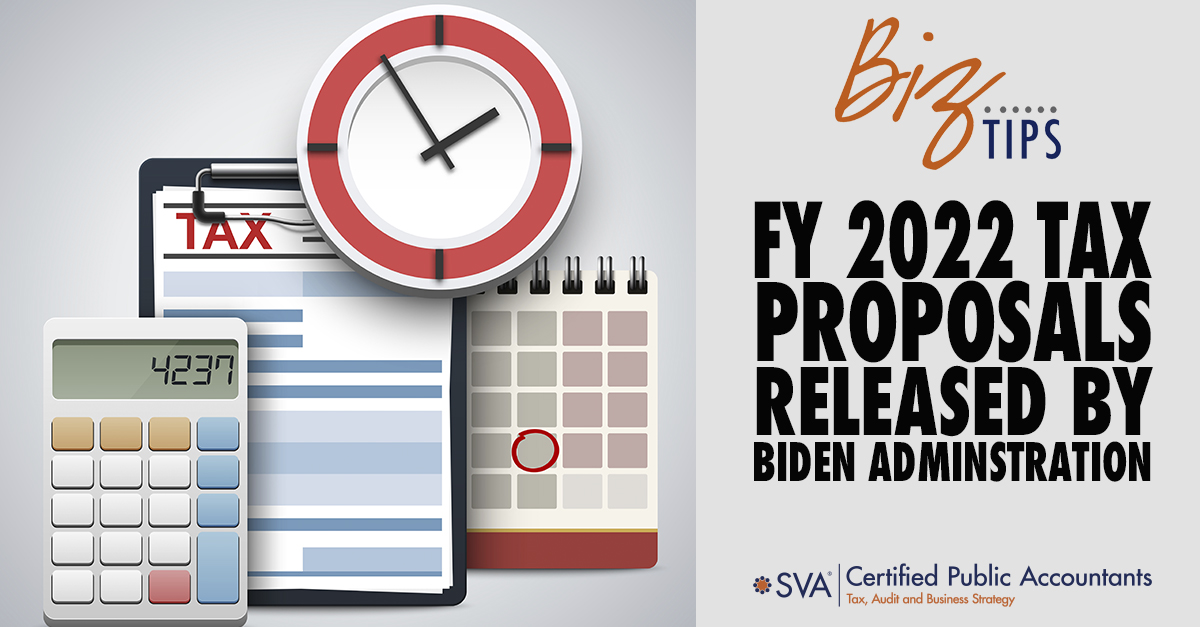Back at the end of May, the U.S. Treasury Department released the “Green Book” for the 2022 fiscal year.
Describing extensively the American Jobs Plan and American Families Plan tax proposals, we've reviewed the “Green Book” to find some of the tax changes that are expected to have the most significant impact on Americans and American businesses, along with their proposed effective dates.
In this article, we'll review these issues so that you and your business can stay on top of these changes.
Proposed Tax Changes in Biden's "Green Book"
Corporate Tax Rate Increase
President Biden's administration has made a proposal to increase the corporate tax rate. Rather than the 21% enjoyed by many businesses from the Tax Cuts & Jobs Act of 2017, C corporations would see a new 28% flat tax rate.
For taxable years beginning after January 1, 2021 and before January 1, 2022, the tax rate would be equal to 21 percent plus 7 percent times the portion of the taxable year that occurs in 2022.
Individual Top Marginal Income Tax Rate Increase
A proposed increase in the top ordinary income tax rate from 37% to 39.6% would be effective starting with the 2022 tax year. This change would accelerate the return to a top income tax bracket of 39.6% rather than waiting until tax years following 2025.
It would also lower the income levels at which these rates occur, with joint filers currently seeing 37% at income above $628,300 scheduled to be taxed at 39.6% at income above $509,300 (married filing separately are at half these amounts), while single filers and head of household previously taxed at 37% for over $523,600 scheduled to be taxed at 39.6% at $452,700 and $481,000 respectively.
Increased High Earner Capital Gains and Qualified Dividend Rates
Numerous changes are in line for taxing capital gains. Married taxpayers filing jointly with an adjusted gross income (AGI) of $1 million or higher would see increases in long-term capital gains and qualified dividends at the highest rates. It's anticipated that they will be taxed at ordinary income tax rates for all income above $1 million. Married filing separately would be penalized over $500,000.
Appreciated Property Gifts and Death Transfers
When property appreciates in value and is then either transferred as a gift or upon death, it would be treated as a sale, with the donor or deceased individual from whom the assets had been transferred considered to be a seller and with gains treated as income on their federal estate, gift, or separate capital gains tax returns.
Carryforwards and capital losses from transfer at death may be taken on a final income tax return, with any taxes imposed on the sale being deductible on the deceased individual's estate return.
Non-Corporate Entity Recognition of Unrealized Appreciation Gains
Any gains that occur on unrealized appreciation would be realized by trusts, partnerships, or similar non-corporate property ownership, provided that it hasn't been subject to a recognition event in the past 90 years. This testing period starts on January 1, 1940 and the first possible gain date would be recognized on December 31, 2030.
Net Investment Income Tax and Self-Employment Tax Contribution Changes
A Net Investment Income Tax (NIIT) or Self-Employment Contributions Act Tax (SECA) would be applied on high-earner pass-through business income. At the same time, NIIT definitions would be expanding, with all business or trade income from high-income taxpayers with AGI exceeding $400,000 having to pay a 3.8% Medicare Tax, payable either through the NIIT or SECA programs. This would apply to both gains and gross income from a trade or business which has not otherwise been subjected to unemployment taxes.
By comparison, LLC members, S corporation shareholders, and limited partners who are providing services to and materially participating in their company would be subject to SECA on the distributive portion of their income after particular thresholds are exceeded. However, the current SECA exemptions, such as some retired partner income, rents, capital gains and dividends, would continue to apply to these organizations.
All of these changes would apply to tax years that start after December 31, 2021.
Carried Interest Treatment
Though it's been handled differently in the past, carried interest would be treated as ordinary income subject to self-employment taxes. The proposed change notes that although profit interests are typically organized as partnership interests, the income that is being received is actually connected to the performance of services.
This also allows a partner's income share from investment partnerships to be taxed as ordinary income, no matter the character of the partnership's income, provided that the partner's taxable income across all sources is in excess of $400,000.
Limitations on Like-Kind Exchanges
For exchanges that are finished after December 31, 2021, gains may be deferred in Section 1031 for up to $500,000 per taxpayer or $1 million for married filing jointly every year. However, during a transfer year, gains in excess of these limits would be taxable.
(Download Video Transcript)
If you have any questions about these proposed tax law changes, please contact SVA and we will get you the information you are looking for.

© 2021 CPAContentPlus

